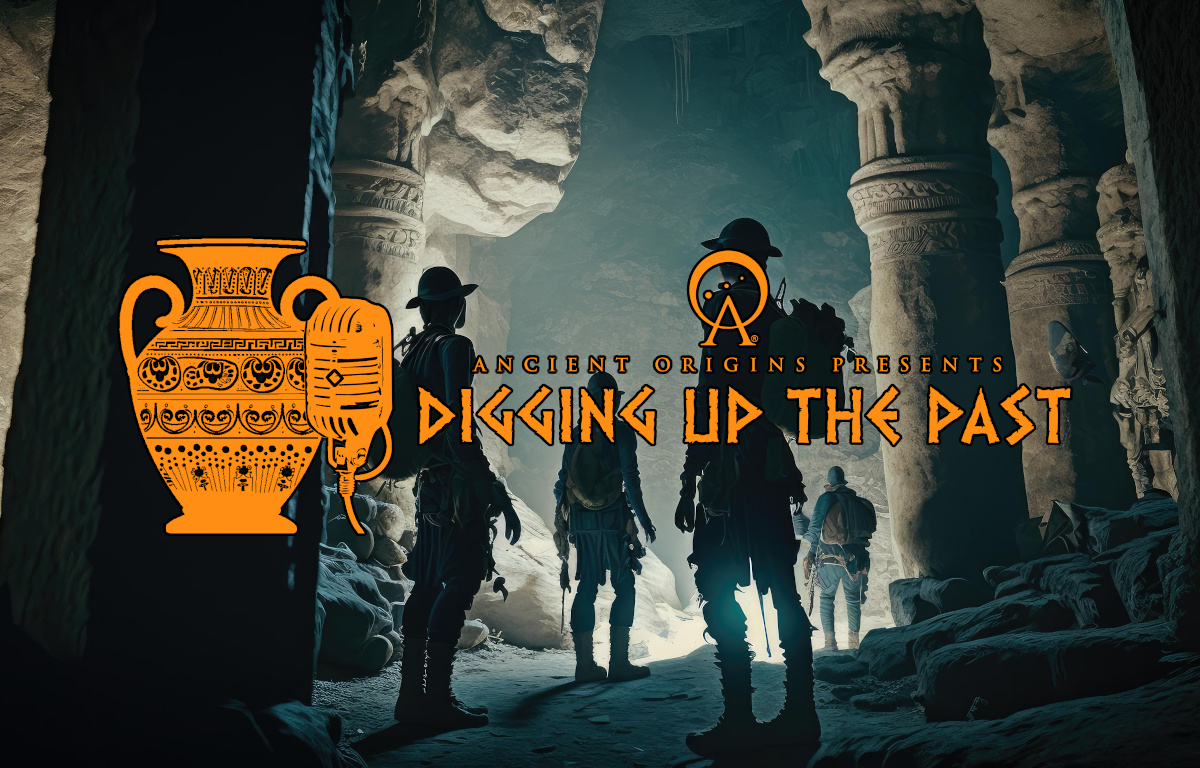
Podcast: Digging Up The Past: Episode 22 - Hammurabi's Shoes, Just kidding! We Talk After 1177 BC
Episode Description
We sit down with Dr. Eric H. Cline to discuss his latest publication, After 1177 B.C.: The survival of Civilizations. He is a historian, archaeologist, professor of ancient history and archaeology at George Washington University at Washington DC. Author of numerous top selling books in the category of ancient history which includes 1177 B.C.: The Year Civilization Collapsed and more. We also talk about the collapse of the Bronze Age, the Sea Peoples, excavating Megiddo and so much more.
About the Guest
Dr. Eric H. Cline is Professor of Classical and Ancient Near Eastern Studies and Anthropology, the former Chair of the Department of Classical and Near Eastern Languages and Civilizations, and the current Director of the GWU Capitol Archaeological Institute. He is a National Geographic Explorer, a Fulbright scholar, an NEH Public Scholar, a Getty Scholar, and an award-winning teacher and author.
He is the author of 1177 B.C.: The Year Civilization Collapsed, Digging Up Armageddon: In Search for the Lost City of Solomon, After 1177 B.C.: The Survival of Civilizations and many more titles.
Excerpt
Petros: I agree 100%, and in that order too. But we're not here to talk about Indiana Jones. We're here to talk about your latest book after 1177 BC, The Survival of Civilizations. But before we get into that, I've been reading your books for a long time now. Here, let me pull some of them off.
Eric: Oh, no.
Petros: So, you know, I have quite a bit of a collection here.
Eric: Oh, wow.
Petros: And here's the thing. I don't want people to take away from this like I've got a bit of an obsession because you write about topics and the field of archaeology that you're in covers areas that have interested me for a long time. My listeners may not necessarily know this because I don't recall if I mentioned in a previous episode, but my autism has it. What it does, it gives me the ability to hyper focus. And when I hyper focus on topics, I tend to stick with specific topics. authors, archaeologists, and so forth. But in the early days of when I was starting to get into the late Bronze Age, early Iron Age history, I started picking up your books. And at first, I didn't realize, who's this Sarah Klein guy? I don't know. But over time, and especially after the release of 1177 BC, I started to pay attention because this was an area that I was just passionate about in my personal interests, and you just seem to cover it all. So that's why this collection exists, not because I'm a stalker, but because this is an area I've always been interested in.
Eric: Right. Well, great. Well, you and me both. I mean, this is the area that I've always been interested in. I mean, when I got interested in archaeology when I was seven years old, it was because It was because my mother gave me a book on Troy and Heinrich Schliemann. So, you know, Late Bronze Age, I'm there right with you. But I'm also not only am I impressed by that stack of books. That's wow. But I'm glad that it has resonated with you and with other people, because one of the things that I want to do is make book's knowledge of the ancient world and archaeology accessible to more people. I mean, I couldn't do it without all the scholarly publications that my colleagues put out, but somebody has to kind of translate them, if you will, and my mantra with 1177 and now the sequel After 1177, in my mind, it says, I read these so that you don't have to. I'm reading all the other scholarly articles, this and that. Reading them on your behalf, I'm going to condense it and present, hopefully, in a compelling narrative what the nucleus, what the gist is. I have to say, my rule of thumb is I only write about what interests me because what I figure, and I found this out the hard way, in the classroom, if I'm lecturing about material that is not interesting or that bores me, that will come across and the students get bored. You know, same thing in writing. So if I'm lecturing about things that I'm interested in, if I'm writing about things that I'm interested in, hopefully that enthusiasm... carries over to the audience and to the reader or the listener. So you would be a perfect example of my target audience, shall we say. So I'm thrilled to see that large stack of books because it means I've reached at least one person. So there's that.
Petros: Yeah, there's one book that I'm realizing that is missing from that list or pile. But that's because I only have it in digital form. And that's one that you authored that was on Ramses III.
Eric: Yes. Well, those... There are three books that are in kind of a separate category. The Ramses III one, there's another one on Thutmose III and Amenhotep III. We did a trio of books on Egyptian pharaohs that ended in three, right? Amenhotep III, Thutmose III, Ramses III. The difference with those is that those are edited volumes. They're not written by me, they're edited by me or co-edited. So they do tend towards, contents aimed more at scholars and colleagues than at the general public, though the general public will get a lot out of them if they want to get down into the weeds, right? So I would say there's those caveats with them is those are co-edited and many of the, all the contributions are by colleagues.




